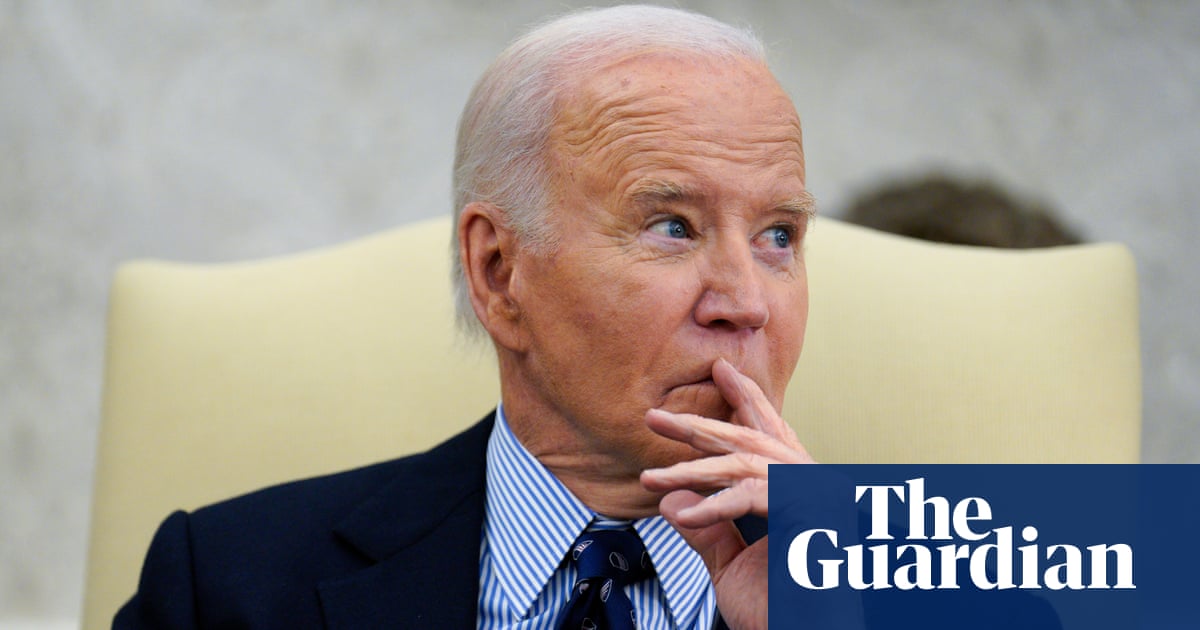US pollsters are under fire for the third presidential election running for failing to foresee Donald Trump’s emphatic ballot box triumph that will propel him back to the White House.
Having seriously underestimated Trump’s support in the 2016 and 2020 elections, polling agencies trumpeted a recalibrated methodology for 2024 that was meant to more realistically reflect his standing while restoring their own credibility.
Instead, pollsters are now being called on to explain a broad range of surveys that showed the two candidates essentially deadlocked both nationally and in battleground states in a race that was deemed too close to call.
Compounding the embarrassment, many polling experts in the final days before election day predicted a narrow electoral college victory for Kamala Harris, who was foreseen by some as just about eking a win in a majority of the seven swing states: Pennsylvania, Michigan, Wisconsin, North Carolina, Georgia, Arizona and Nevada.
In fact, Trump has won five of the states at the time of publication and was leading in Nevada and Arizona, which had yet to be called.
Standing out was a poll published at the weekend by the Des Moines Register that purported to show Harris with a three-point lead over Trump in the Republican stronghold state of Iowa – supposedly fueled by widespread outrage among women voters over the restriction of abortion rights.
The poll, carried out by J Ann Selzer – an Iowa pollster widely renowned among her peers for reliability – fed Democratic hopes of a groundswell of support among female voters that could potentially carry over to neighboring Michigan and Wisconsin.
Selzer vouched for its findings even while Trump’s campaign dismissed it as a “fake poll” and “a clear outlier”.
“I’ve been the outlier queen so many times,” Selzer, whose polling correctly foretold Barack Obama’s triumph in the Iowa caucuses in 2008, told the New York Times. “I’m not jumpy.”
Actual events proved the poll to be a dud. Iowa was called for Trump early, and with nearly all the votes counted on Wednesday, he led by an emphatic 55.9% to 42.7%.
Rick Perlstein, an award-winning historian who has written several books chronicling the rise of American conservatism, lamented the role of polling in modern elections in a series of posts on X.
“Iowa called for Trump. Polling is a very compromised enterprise. It would be great to see people start ignoring it,” he wrote on Tuesday evening.
In a later post, he wrote: “One of the trippy things about the polling enterprise is [the] fraught relationship they have with traditional journalism, complaining of their breathless coverage that does not understand polling methodology, but also soliciting that coverage for business purposes.”
The criticism was joined by Allan Lichtman, a historian at American University who forecast a Harris victory based on a system of 13 “keys” he had used to correctly predict the outcome of 11 of the past 12 presidential elections.
“Unlike Nate Silver, who will try to squirm out of why he didn’t see the election coming, I admit that I was wrong,” Lichtman wrote, adding that he would assess his method and the election in a live broadcast on Thursday.
after newsletter promotion
Silver, a pollster who founded FiveThirtyEight, made Harris a marginal favourite hours before polls opened, but had written two weeks earlier that his “gut” favored Trump.
The pollsters’ discomfiture was also highlighted by online betting companies, who claimed they had more accurately predicted the result than self-proclaimed professionals with decades of experience in the field.
Five companies – Betfair, Kalshi, Polymarket, PredictIt and Smarkets – gave Trump a better-than-even chance of winning on the eve of polling day, the New York Times reported. As polls closed on Tuesday, their odds in favour of his winning shot up.
Polymarket boasted that it had “proved the wisdom of markets over the polls, the media, and the pundits”.
“Polymarket consistently and accurately forecasted outcomes well ahead of all three, demonstrating the power of high volume, deeply liquid prediction markets,” the company posted on X.
Tarek Mansour, the chief executive of Kalshi, put it more succinctly. “Polls 0, Prediction Markets 1,” he wrote.
Read more of the Guardian’s 2024 US election coverage

 German (DE)
German (DE)  English (US)
English (US)  Spanish (ES)
Spanish (ES)  French (FR)
French (FR)  Hindi (IN)
Hindi (IN)  Italian (IT)
Italian (IT)  Russian (RU)
Russian (RU)  2 weeks ago
2 weeks ago
























Comments